After selecting the “See detailed analysis” button on one of your ideas from the Optimization Ideas report, you’ll arrive at a Detailed Analysis of the webpage you want to optimize. This is where you can see the data that Semrush aggregates from your top 10 rivals in order to determine the ideas that it suggests in your campaign. Detailed Analysis breaks down six on-page SEO factors from your rivals' pages.

Keyword Usage
This section tells you how your rivals use your target keywords throughout their webpages to get them to rank. Semrush compares your usage of the keyword (keyword density) to the average usage between your rivals (the pages on the first page of Google). You’ll see if it’s used in their body, title, H1 or meta description in the first table. You can see the actual list of rivals we analyzed with the link under the SERP column. The “Keyword phrase usage” table at the top indicates the density of this keyword and the “Keyword Occurrences” table at the bottom indicates the actual number of times the keyword appears in the text of the webpage.
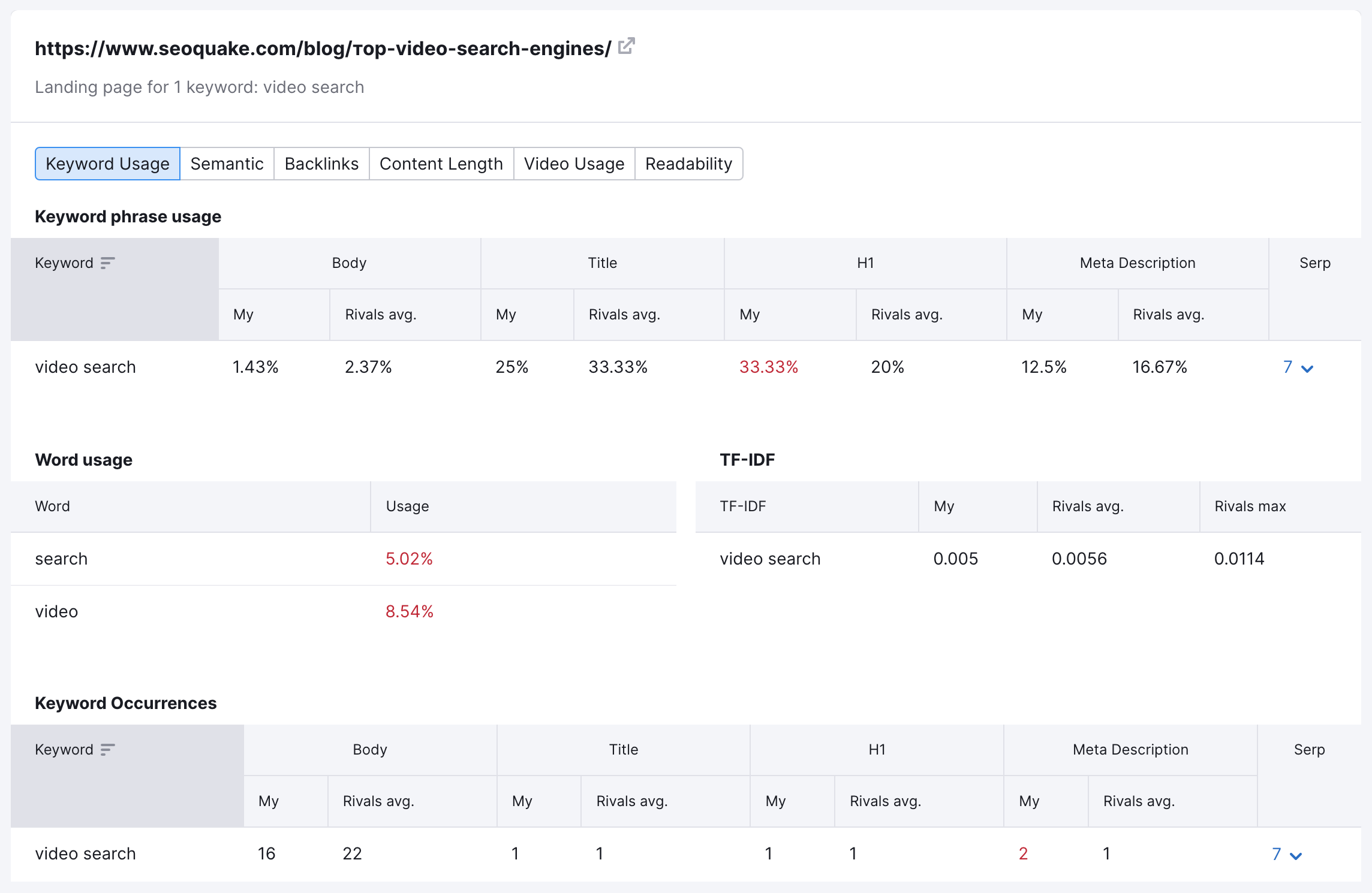
The Word Usage table shows the density between each word that makes up the target keyword phrase. If you’re targeting a long-tail keyword, this will show you how often each word from the phrase appears on your webpage.
TF-IDF stands for term frequency-inverse document frequency and is a way of measuring how important a certain term is for the comprehension and subject of an entire document. Basically, it tells you how important the target phrase is based on how frequently it is mentioned within the set of text. You can compare your TF-IDF score to your rivals' average and also your rivals' max here.
Semantic Analysis
The semantic detailed analysis shows you the top words and phrases that are used by your rivals and are semantically related to the target keyword. If you need help brainstorming the right words to use in your content, this is a great place to get started.

The semantically related words and phrases are listed in this table in order of the number of rivals that used the word/phrase in their content. If all of your rivals used the same semantically related phrase, you will see that phrase at the top of the table.
If your webpage is using this word/phrase, you’ll see a checkmark in the “You are using” column. If you aren’t using some phrases that are popular with your rivals, you should consider expanding the writing on your webpage to include these words/phrases.
Backlinks
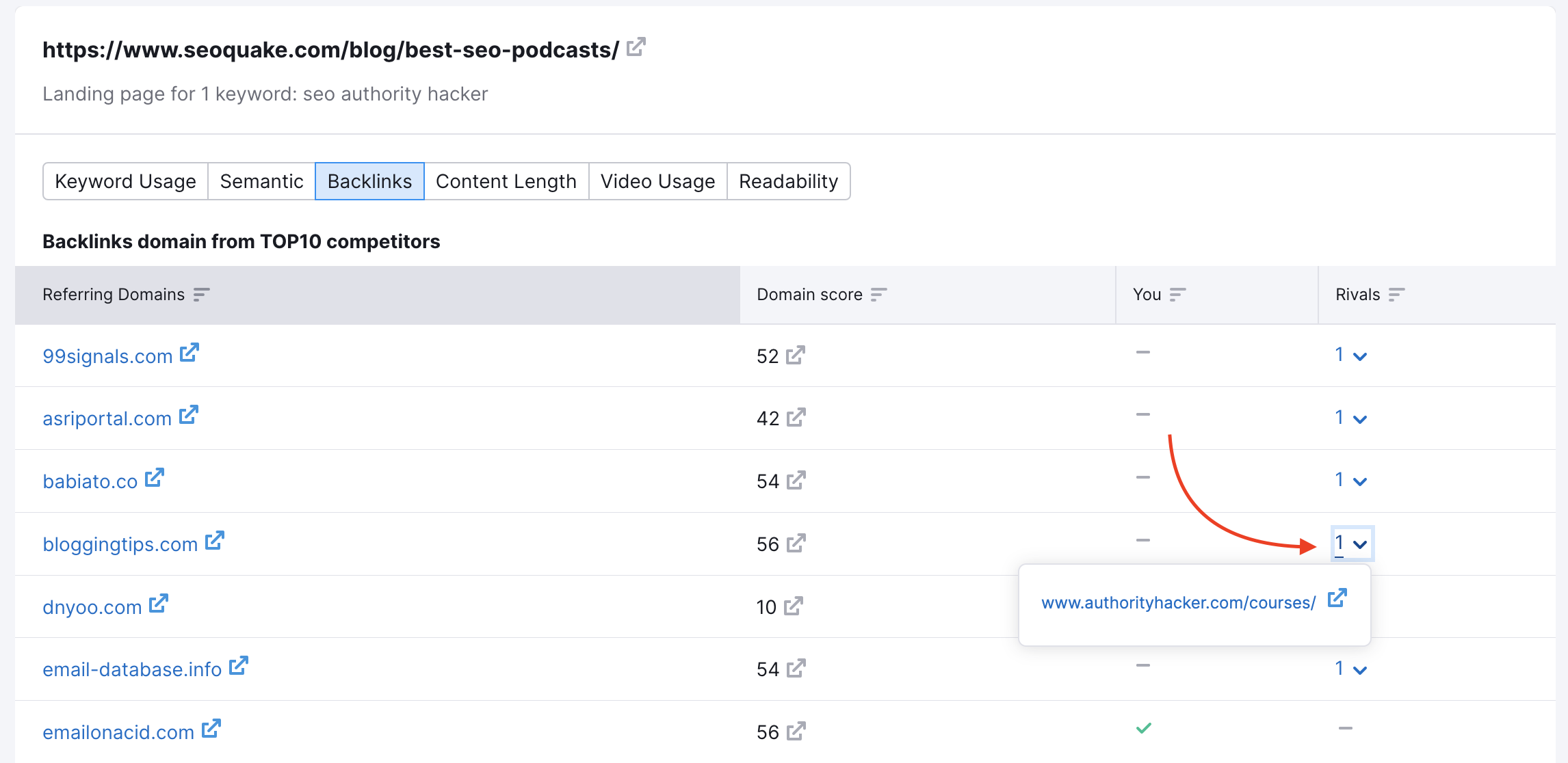
In this Detailed Analysis, Semrush aggregates the backlink profiles of your URL’s top rivals and shows you the referring domains that are shared the most among the top 10. By default, the referring domains are listed by the number of your rivals that the domain is linking to. You can sort the table by Domain Score, You (whether or not your URL has the backlink), and the name of the referring domain.
Click on the number in the “Rivals” column to see where the link to your rival is coming from. If you see referring domains in this list that many of your rivals have backlinks from but you don’t, you should attempt to acquire a backlink to boost your page’s SEO.
Content Length
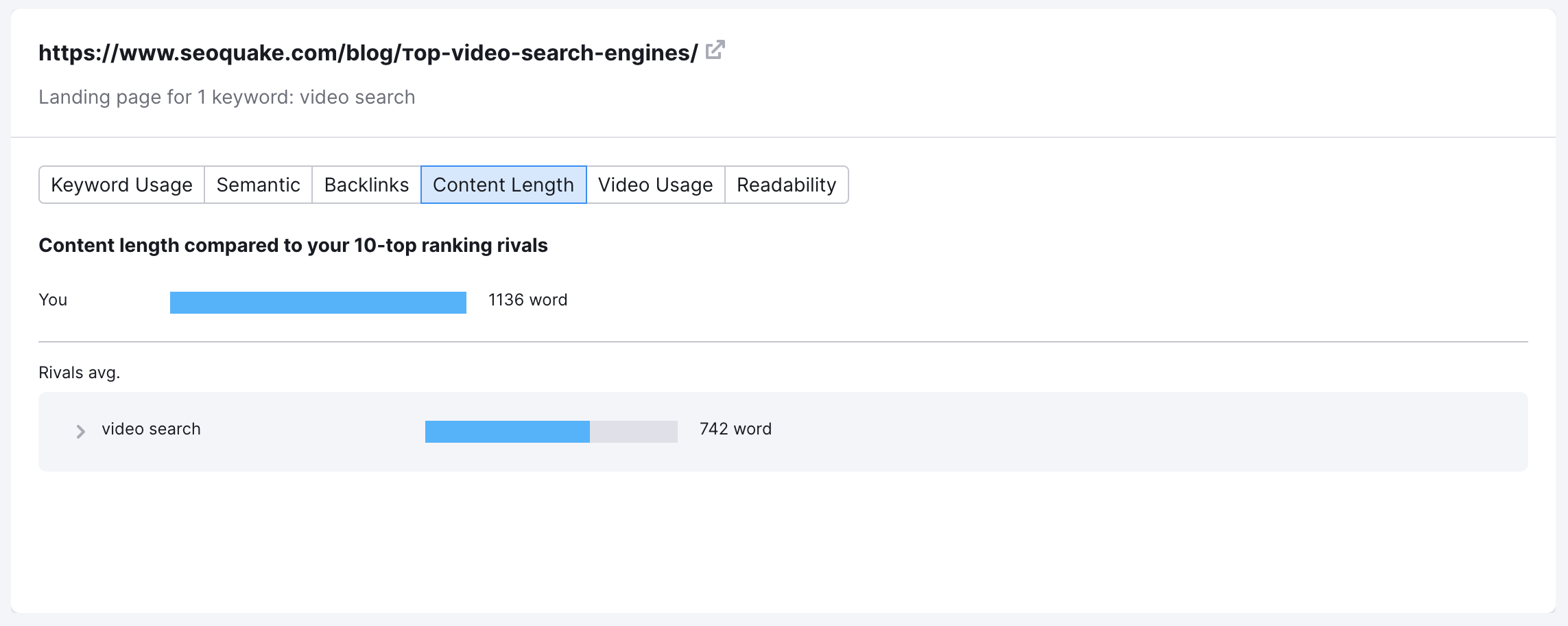
Here you can compare how the word count of your webpages compares to your rivals for each target keyword. If you see that your pages have much less content compared to your rivals, it could be an opportunity for you to expand your content with more helpful information to compete with your rivals. Your rivals' average word count will be shown by default, but you can click on the keyword to expand the list and see how many words are on each rival’s page.
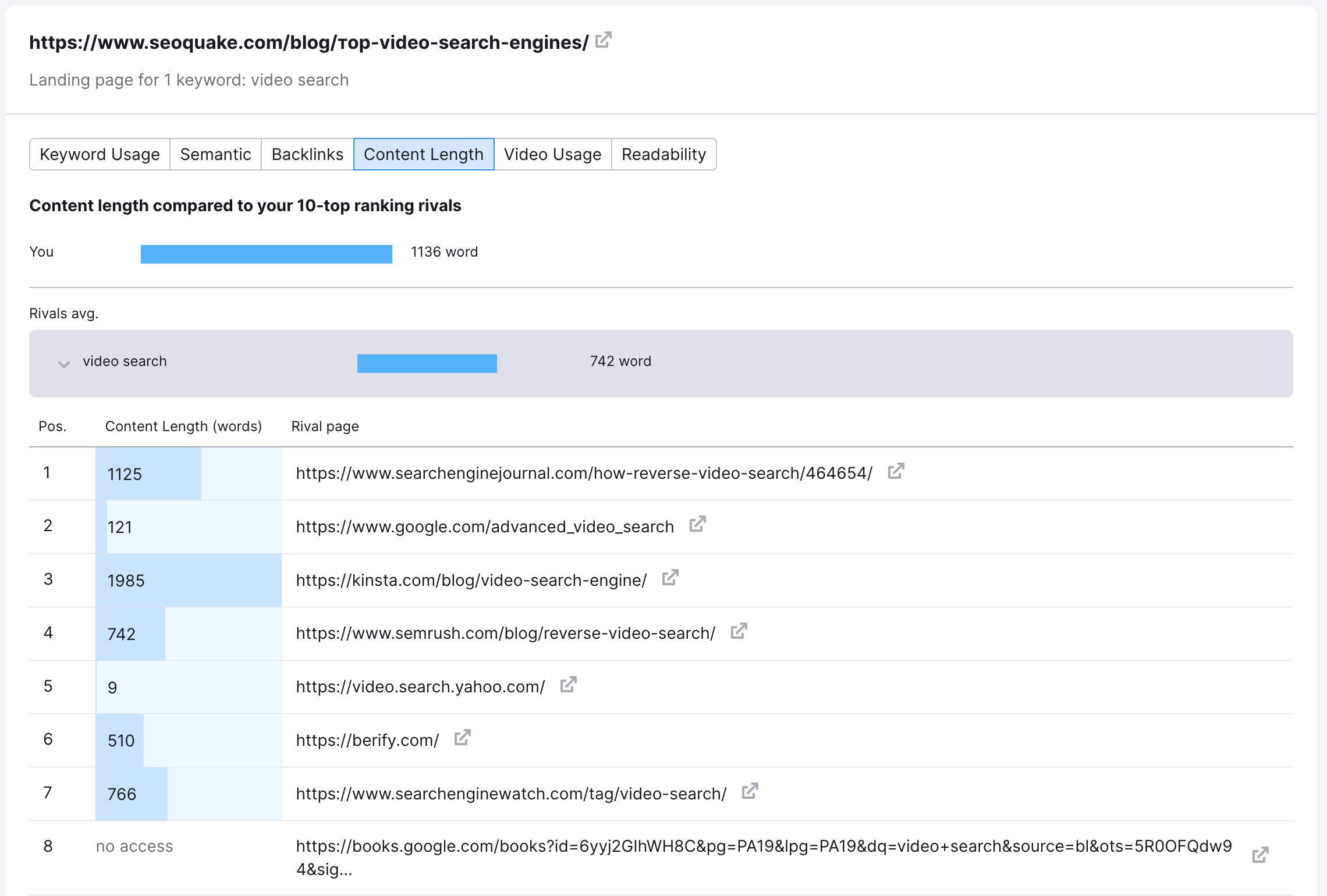
When analyzing the length of the text, On Page SEO Checker downloads the code of the page and counts all the words in the body tag, with the exception of Stop words. Words like the, in, or a don't change the meaning of a query, and search engines ignore them both in search queries and search results. You can read more about SEO stop words in our blog.
Video Usage
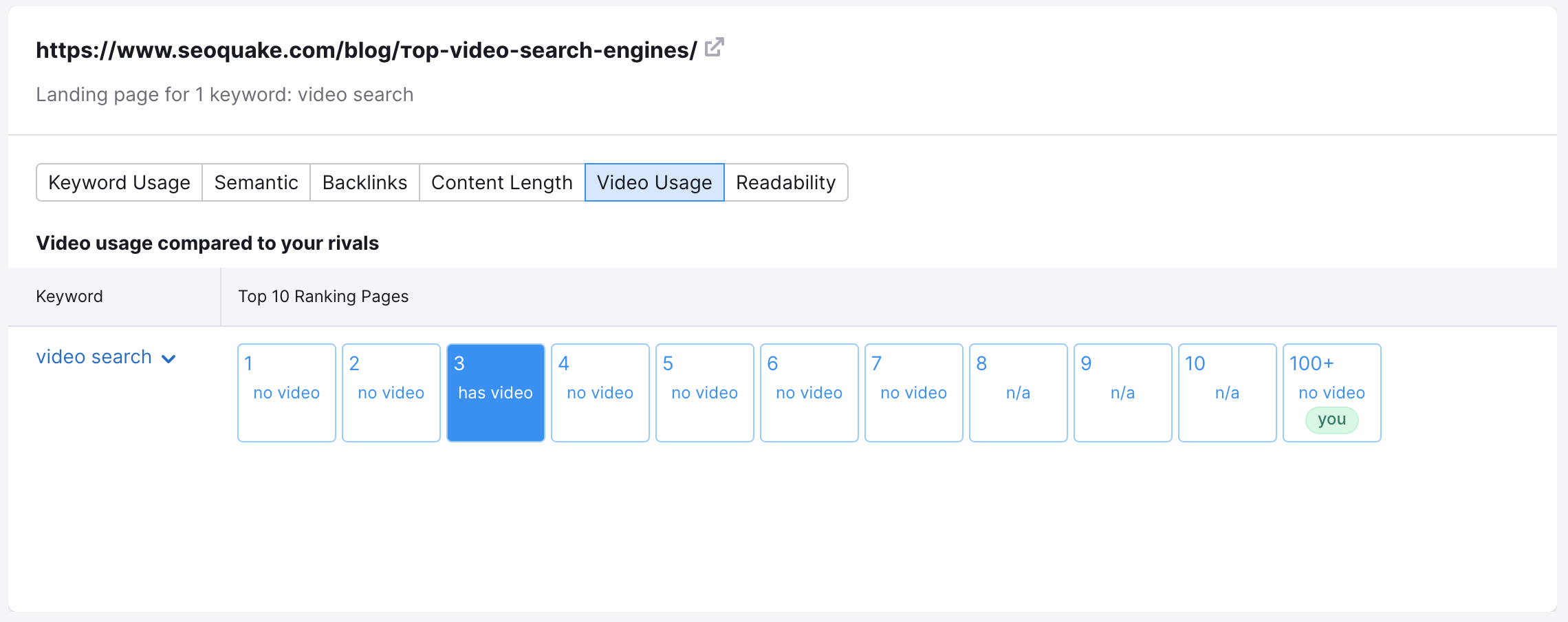
This analysis identifies the presence of an embedded video on your rivals’ pages. For each page ranking in the top 10, it will be noted with either “has video” or “no video.” Take note that your current ranking will be listed at the end of the row if you are not in the top 10.
Readability Analysis
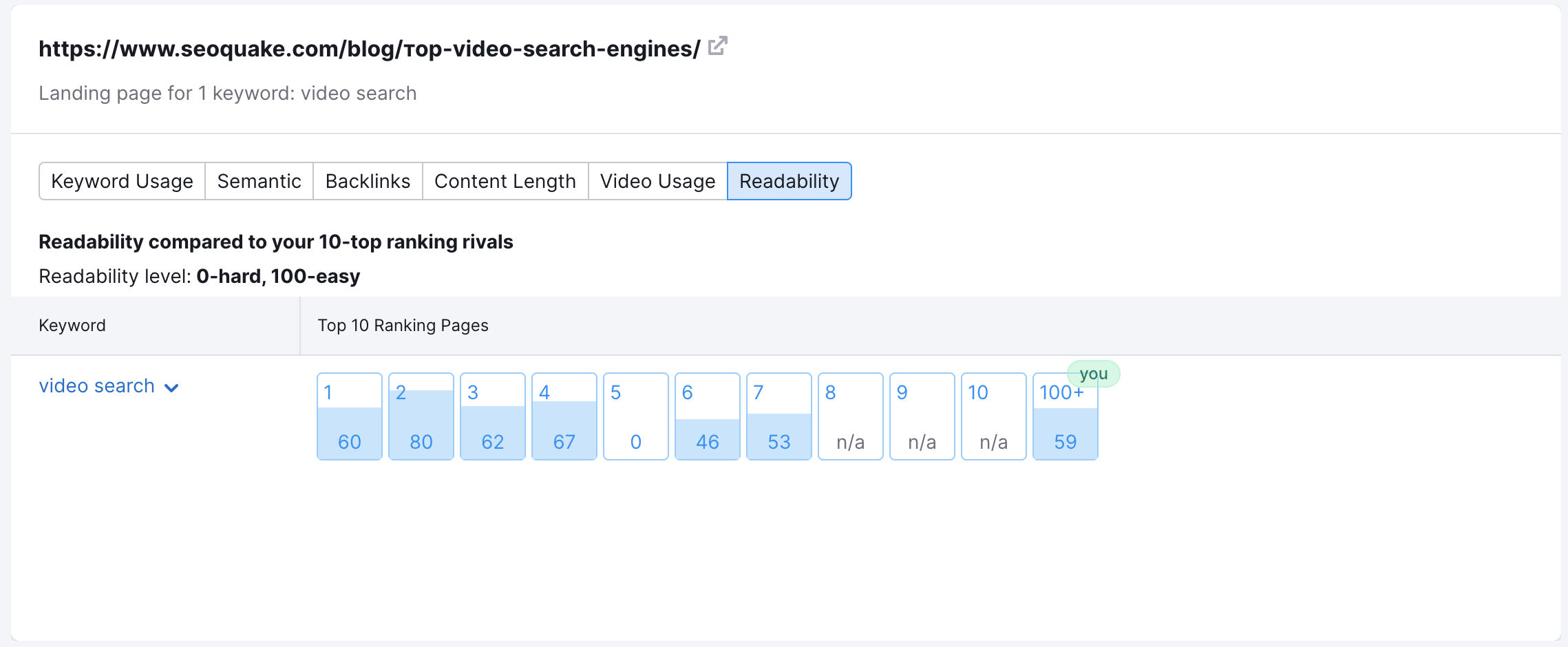
This analysis will compare the readability score of your content to your top 10 rivals. Please note that a higher score indicated an easier reading level and a lower score indicates more difficulty. We calculate these scores in a similar fashion to Flesch-Kincaid. If you want your webpage to compete with your rivals, make sure that it does not have a drastically lower readability score. Otherwise, users and search engines will prefer your rivals' more user-friendly content to yours.